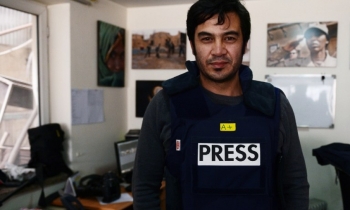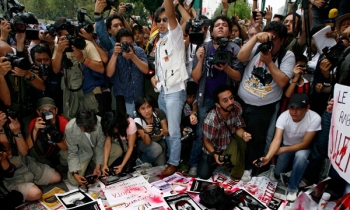The Mozambique Supreme Court has validated the pronouncement by the Maputo city Judicial Court that tried and sentenced six co-accused to heavy prison terms in January 2003 in the murder of investigative journalist Carlos Cardoso.

The six acused were Anibal dos Santos Junior (Anibalzinho), Momad Assif Satar alias Nini, Ayob Satar, Vicente Ramaya, Manuel dos Anjos Fernandes, and Carlitos Rachid.
Cardoso was gunned down on November 22, 2000, while investigating the 1996 embezzlement of US$14 million from the state-controlled Commercial Bank of Mozambique (BCM).
The court also Tuesday last validated the 14 million meticais (about $546,000) fine to the Cardoso family, plus 1.5 million meticais ($58,000) to Cardoso's driver, Carlos Manjate, who was seriously injured in the shooting.
“We are pleased that the judicial process has come full circle in prosecuting the killers of Carlos Cardoso,†said Committee to Protect Journalists (CPJ) Executive Director Joel Simon. “We urge authorities to pursue all remaining leads to try all those responsible.â€
Cardoso family lawyer Lucinda Cruz was quoted by the state-run news agency Agencia de Informacao de Mocambique as saying she was satisfied with the verdict. “I’m content, I’m satisfied. It’s what we always asked for,†she said. The defendants could appeal to a plenary of the Supreme Court, but it was unlikely this plenary would overturn a verdict by a panel of three of its members, she said.
Dos Santos, better known as Anibalzinho, is currently in prison after being twice sentenced to 28 ½ years in prison for recruiting Cardoso’s killers.
In another case related to the killing, Mozambique’s state prosecutor formally charged in May 2006 businessman Nyimpine Chissano, son of former Mozambican President Joaquim Chissano, with “joint moral authorship†of the murder after several defendants implicated him in the crime, according to news reports. Chissano has yet to be arrested and has denied any involvement in the murder.
Mozambican courts struggle with an entrenched culture of political influence since the end of two decades of one-party rule in1994, according to an October 2006 Africa Governance Monitoring and Advocacy Project report. Anibalzinho’s escapes and the Cardoso trial “strengthened the public’s perception that organized criminal elements have connections with senior government officials,†the report said.









